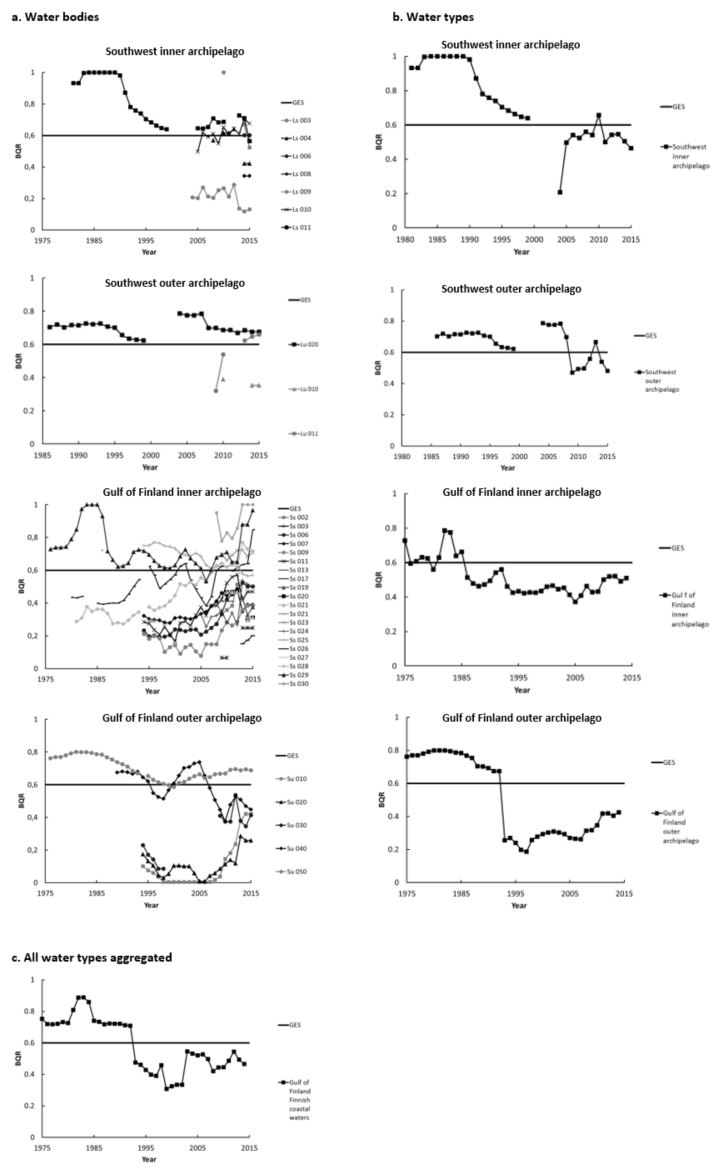Abstract
Oceans around the world are threatened by human pressures. Ecological indicators are useful tools in understanding complex systems and their changes caused by human pressures, and the information they offer is also needed for ecosystem-based management. Integrated assessments combine information produced by several indicators at different spatial scales and thus offer a more holistic view of the status of the ecosystem. In this study, we evaluate the integration of biodiversity indicators at different spatial scales in two study areas in the Baltic Sea: Gulf of Finland and Bothnian Sea. By producing time series of the indicators and integrated assessments, we study the historical changes in the overall marine biodiversity status, and the impact of data availability, indicator selection, and choice of spatial assessment units on the status assessment. The integrated assessments are produced using the Biodiversity Assessment Tool (BEAT 3.0) and following the procedure of the HELCOM integrated assessment of biodiversity. The analysis shows that the results of the integrated assessment depend strongly on which indicators are available for the assessment, and on the chosen spatial assessment units. While the integrated assessments are a strong communication tool, their interpretation needs to be accompanied by information of indicators to avoid misleading conclusions about the marine ecosystem status.

This work is licensed under a Creative Commons Attribution-NonCommercial 4.0 International License.
Copyright (c) 2019 Susanna Jernberg, Henrik Nygård, Ainars Aunins, Antti Lappalainen, Anna-Stiina Heiskanen, Jens Olsson, Pirkko Kauppila, Samuli Korpinen, Kirsi Kostamo, Laura Uusitalo

